This is an authorized translation in English of a post in French by @terresco: De Cape Town à Mombasa, 3 mois, 8 pays, 12 500 km – La Zambie
Remember that the person who speaks here is NOT me, Vincent Celier (@vcelier), but @terresco, a French guy.
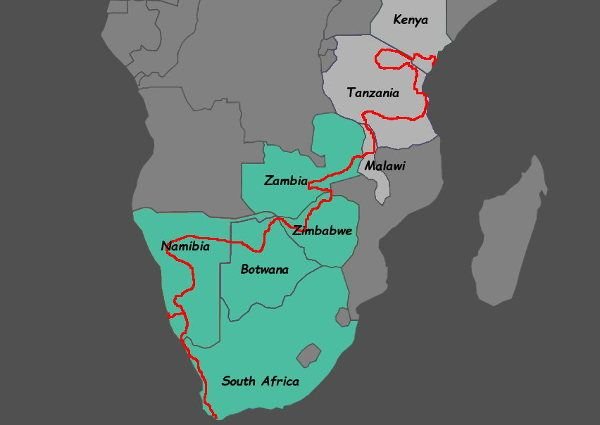
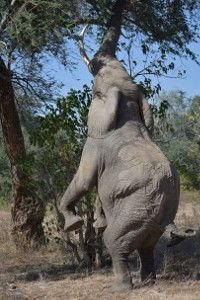
The photos that illustrate this post are all taken in the national park.
Lusaka, a capital on a human scale
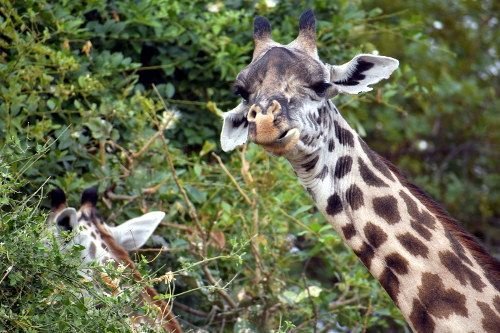
But Lusaka is a capital on a human scale and one feels quickly at ease. Our Cape Town registration brings us many enthusiastic greetings and offers of help from South African expatriates.
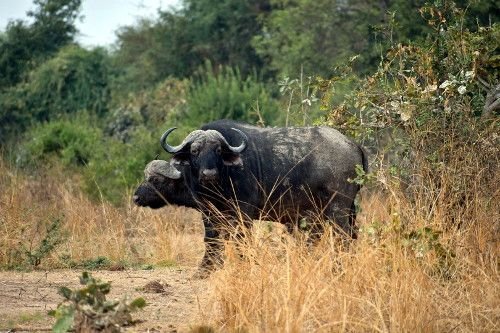
The climate is now warmer and mosquitoes are more present. Not taking prevention against malaria we start to pay more attention at night, long sleeves or cream to the program. When you can treat malaria is not a problem but it's still three days not pleasant at all, especially when it takes you in the middle of the bush.
A poor but dynamic country
It is an excellent route, that the Chinese companies very present in Africa, are finishing, that one goes towards South Luangwa National Park. The park takes its name from the river that runs through it, reputed to be the one in the world where there are the most hippopotamuses.
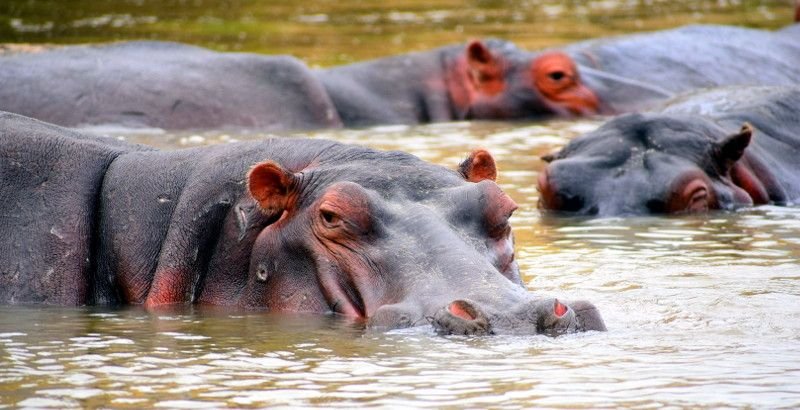
The Luangwa River, the hippos paradise
We take this opportunity to visit small towns and some farms along the road. The atmosphere is very nice, the taxis are bikes with a well padded seat on the luggage rack and valiant and friendly drivers. The small shops are not busy but the smile is always de rigueur. You always find a place to camp, mostly non-profit.
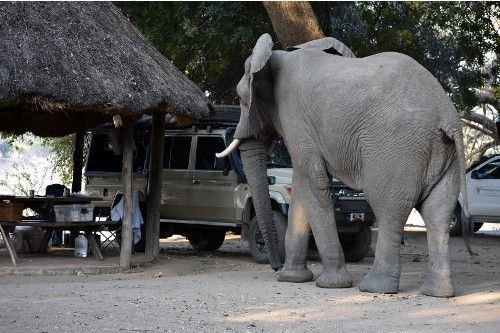
I often enjoy when I travel to go running in th morning where we are in no hurry. These are never solitary runs, because the crossing of the smallest hamlet throws hordes of children on my tracks, some running one or two km, others only a few hundred meters, replaced tirelessly by new ones. Another way to make friends ... who might prefer to go to school but most do not have the opportunity.
South Luangwa National Park
The approach of the park is done by a track a hundred km without any difficulty. Delimited by the Luangwa River to the south, known to host the world's largest hippo colony. It would not be good to walk at night in the area, but the day they are quiet, mostly in the water.
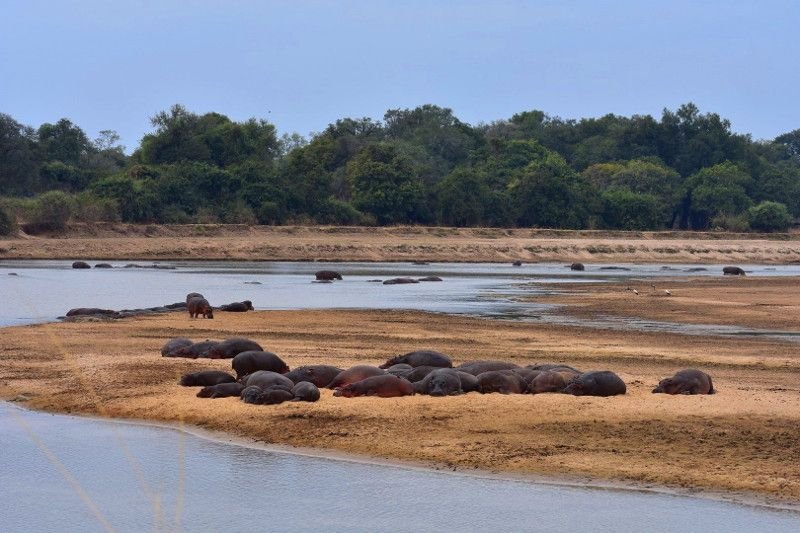
In theory hippopotamuses do not stay out of the water during the day to protect their skin from the sun, but they have to like that ...
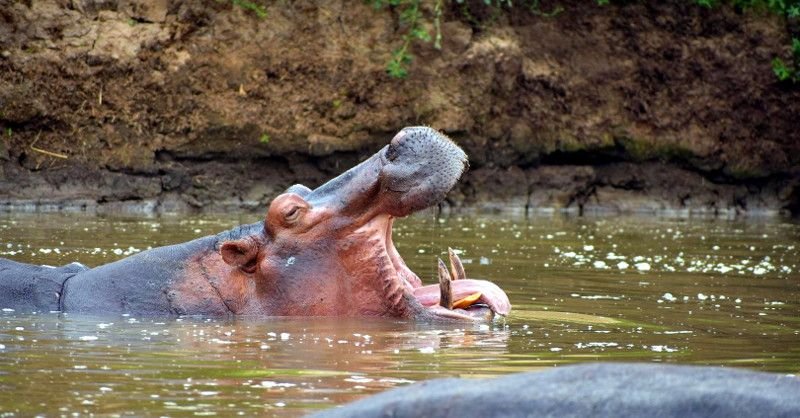
We were lucky enough to find a family of lions who had just killed a buffalo and are eating it. They were twelve in all, so force-fed that most of them are sleeping, their stomachs swollen with difficult digestion. A lioness was watching us, and one or other of them stood up and pulled out a piece of meat. In the neighborhood, vultures, jackals and hyenas wait patiently for their turn.
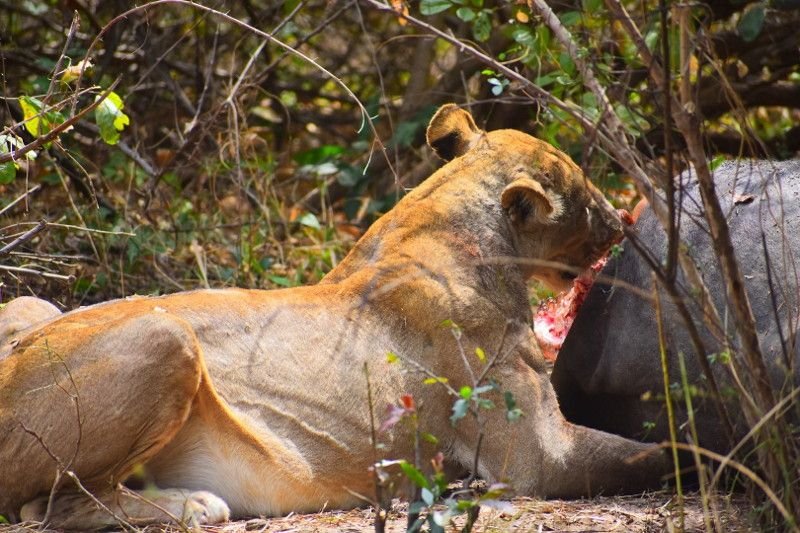
The meal can last several days during which the family will remain on the spot to protect their booty
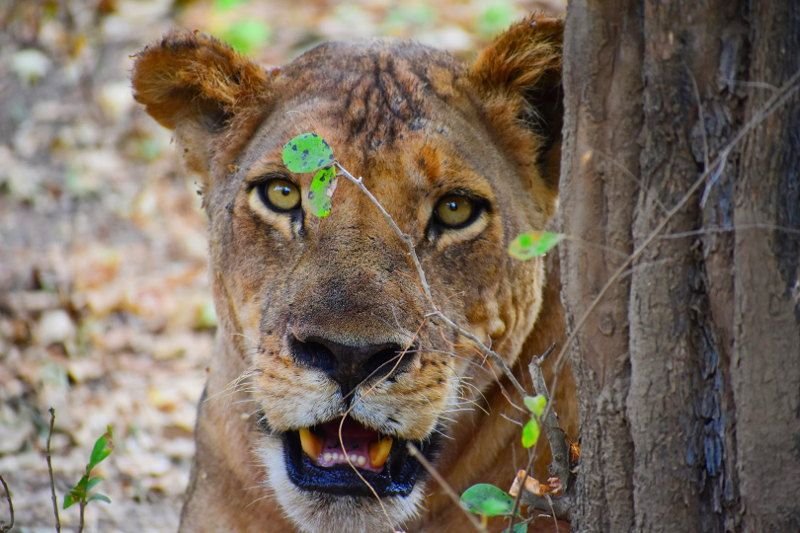
Our car is stopped at ten meters. After a while the lions get used to it but they check on us from time to time
We only need to find a way to reach the border of neighboring Malawi. No particular difficulties but several places require to roll gently to not break anything and especially not to risk hurting someone. It will take longer than expected because not all tracks are on the GPS. Getting lost is sometimes a good thing: this is the park of an improbable castle that we have used used for camping one night.
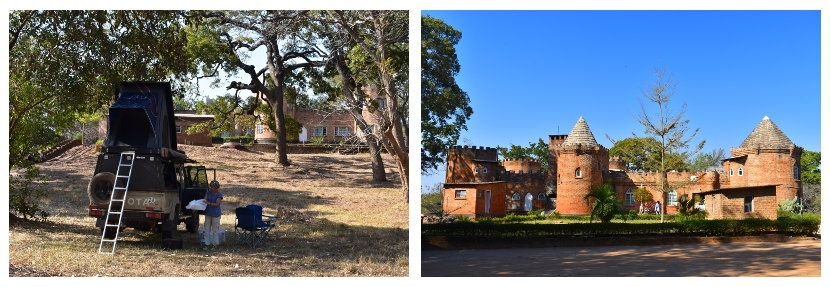
Zambia remains among the poorest countries in the world with about 12 million people, more than 60% of whom live below the poverty line. Education does not happen everywhere, illiteracy is said by some organizations to be 75% of the population. The southern part we crossed is the richest, I'd better say the least poor.
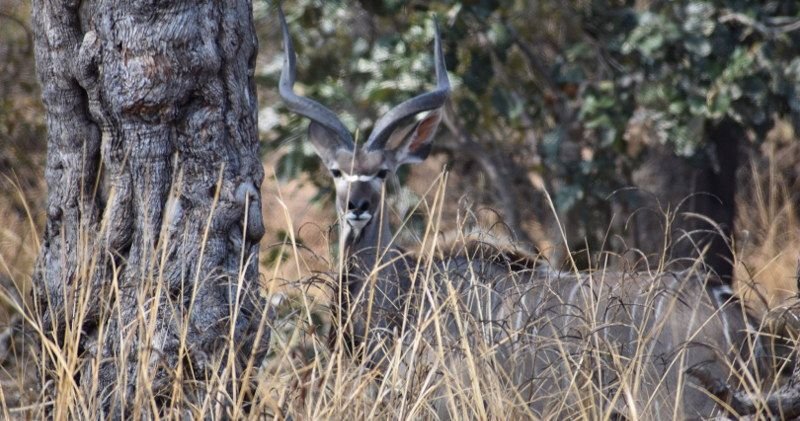
-- @terresco
Africa, the long crossing
From Cape Town to Mombasa: South Africa
From Cape Town to Mombasa: Namibia
From Cape Town to Mombasa: Botswana
From Cape Town to Mombasa: Zimbabwe
From Cape Town to Mombasa: Zimbabwe, part 2, by @terresco
From Cape Town to Mombasa: Zimbabwe, part 3, by @terresco
